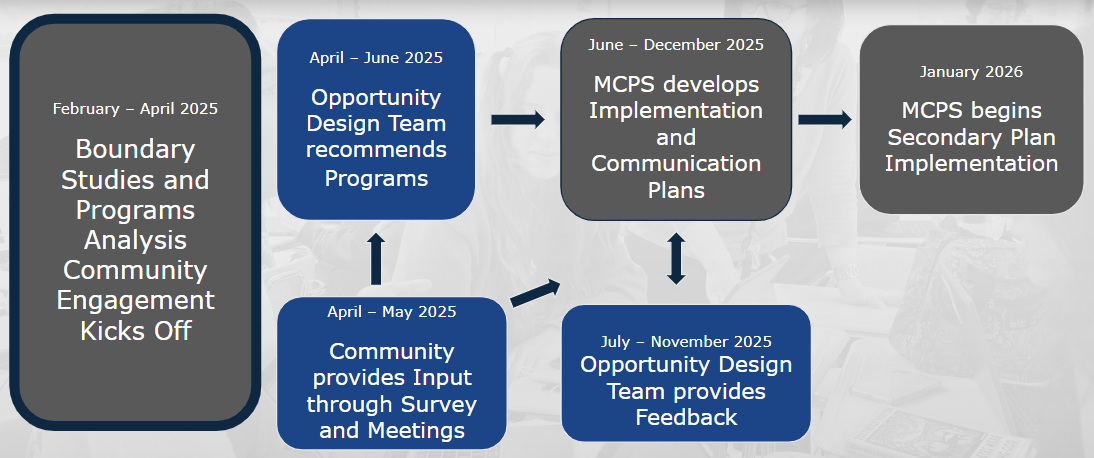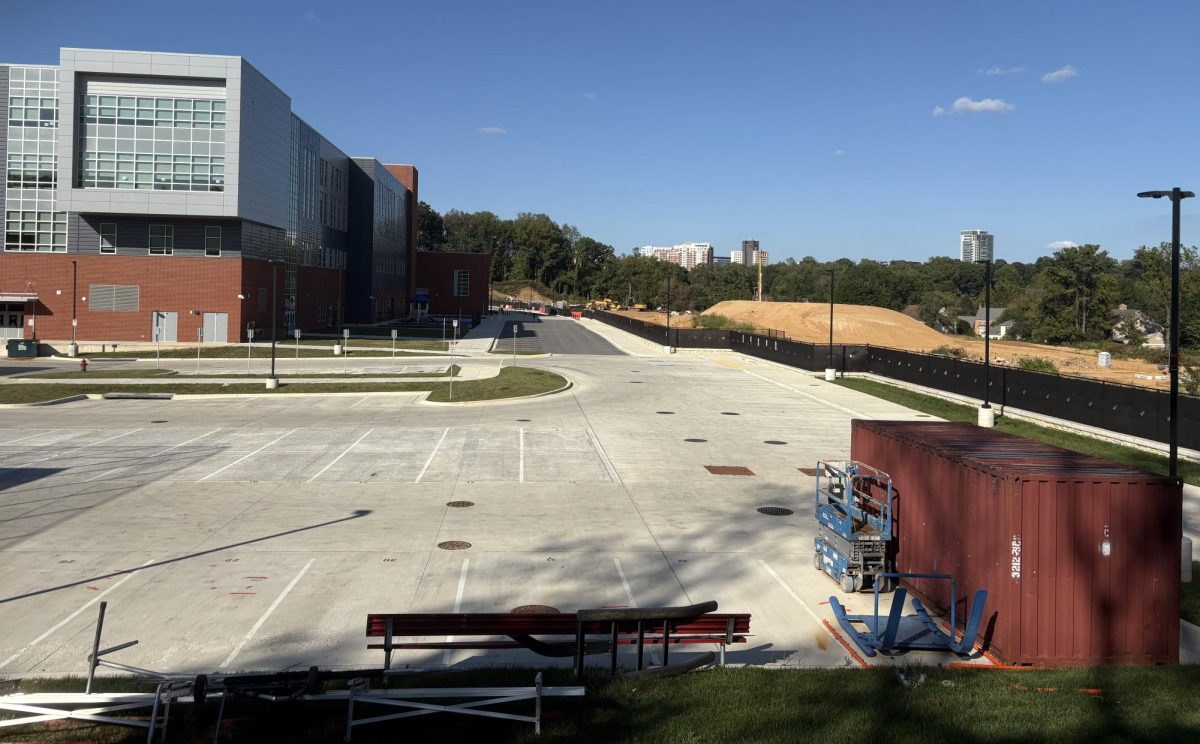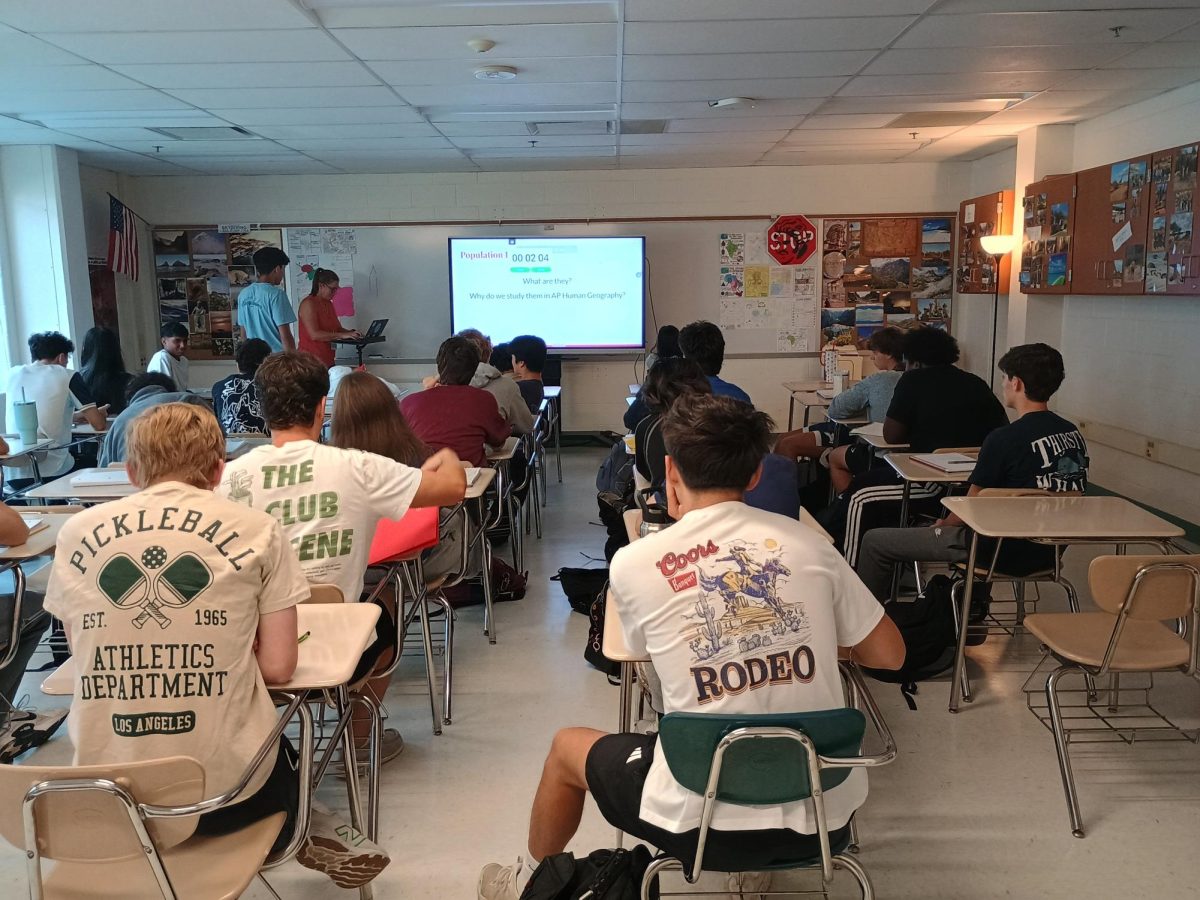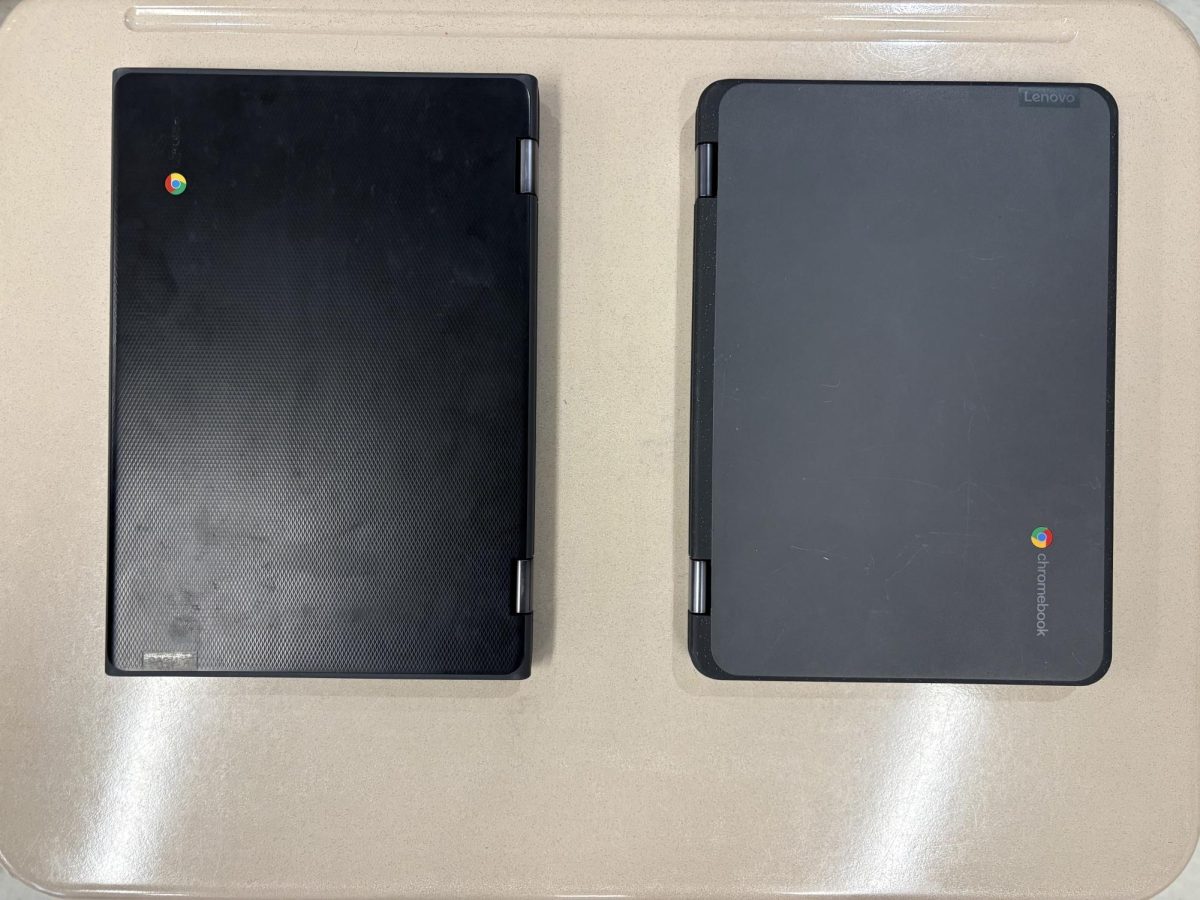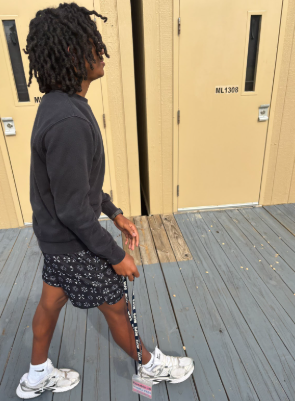
Administon introduced a new digital hall pass system for the 2025-2026 school year.
This new initiative aims to limit student hallway roaming, unlawful absences and maintain an orderly record of who is out of class and for what purpose. Post-implementation, security and administration have observed an increase in attentiveness within the classroom and a decrease in time out of class.
“I do believe that fewer students are trying to just leave class and not use the bathroom,” English teacher Taraneh Azani said. “I do like the ease with which I can just click, approve and the student can just go and you can see the time someone is out of class in a trend. The one benefit I do see is that it has lessened the number of students who use the restroom or get a drink in general. I feel like it has decreased.”
Azani noted the usefulness of the system’s ability to record the total time and frequency students have been out of class. This feature allows teachers to give important feedback to students regarding their class performance relating to time spent in the halls during instruction.
To obtain a hallway pass, a student must log in to their Synergy account and click ‘Hall Pass’. Then, they must request the amount of time they think necessary for their departure from class and their intended destination, before it is approved by their teacher.
“When the teacher puts in the digital pass, it can be viewed by us,” security guard Kelly McDonnell said. “We have an app on our phones that we can look at and see who’s in the hall. You just hit ‘hall pass,’ and then these are all the active hall passes. They’re based on color-code and floors. It does a pretty good job.”
While all core classes are adopting the digital system, electives such as Physical Education, Ceramics, and classes with substitutes are still using physical passes. Additionally, Principal Morgan has the authority to grant administrative exceptions to the new system and allow students and classes hallway permission at her discretion.
The new hall pass system has had a rocky start. Since implementation, multiple students reported technological issues with the system. While the system is effective from a security standpoint, one initial drawback has been that teachers’ lessons and student learning are also often interrupted as a byproduct of the process of requesting and accepting hall passes.
“The fact that both parties, the teacher and the student, have to both agree on their computers makes it really hard because the teacher, during classes, is teaching,” junior Isaac Leventhal said.
For years, the administration has worked to limit out-of-class time for students during the first and last five minutes of the period. Consequently, the online system does not allow pass requests during those times, and also will shrink the amount of time students can request if it encloses upon the last five minutes of class.
Students and teachers both agree that the digital system is successful in limiting instances of missing class, but what is usually a quick hand-raise or nod to the teacher has now turned into a process that is prone to making students wait to use the restroom. This has led to student frustration about the time limit of the digital pass.
“I mean, I think a limit of eight minutes is not valid, because you might not be able to do your business in eight minutes,” Leventhal said. “It also scams me and makes me only able to go for a little bit of time at the end of class.”
Over one month in, it is clear that every Wildcat is adjusting to the new hall pass arrangement.
MCPS’ new, stricter policy concerning Personal Mobile Devices (PMDs) for the 2025-2026 school year has already made an impact.
Among the changes, during instructional time, students have to keep their PMDs in a purse, backpack or holder designated by the teacher. These stricter policies have been implemented to end the use of non-county permitted electronics in class.
French teacher Farah Kinani uses a phone holder in her classroom. “I think it made a tremendous change,” Kinani said. “It helps my students with concentration. The truth is, my students were very kind and nice about it and they just listened.”
Some students have also supported the new PMD policy because it gets rid of distractions that they used to have during the school day.
“It’s quite good, it helps me learn and focus on activities in the classroom,” sophomore Rayyan Hameed said.
In previous years, students were allowed to keep PMDs in their pockets, and even sometimes use them in class when allowed by teachers. This new policy is an effort by MCPS to take more of an initiative on the overuse of PMDs and their negative impact on the mental health of students. Banning phones in class helps students focus on what is in front of them at the moment and engage more socially.
Personal computers and wireless earbuds were also included in the new policy, barring them from use in schools due to their unrestricted internet access.
Many students have doubts about the new phone policy, with concerns raised about what were to happen in an emergency situation. Some students feel more secure with their phone than they would without and prefer personal laptops to Chromebooks.
“I think that it has its pros and cons,” senior Jacob Hincapie Losada. “While effectively getting rid of the use of AI and cheating softwares, it also decreases the productivity of the students because Chromebooks are slow and sometimes may not work. In addition, to have some websites needed to do work blocked ultimately limits students effectiveness and productivity.”
“I disagree with the new PMD policy because I take public transportation home, and sometimes I need to communicate with my parents [about arrangements],” senior Hakem James said.
Despite some teachers asking students about putting their phones into pouches, students have a right to keep their phone from a “phone cubby” if they wish as long as their phone is kept off and away.
Disciplinary action for failure to comply with the policy consists of a four step referral process. MCPS has also given schools 50 magnetic pouches that administrators can use if a student ignores warnings and continues to use their personal device. This allows students to keep their phones with them at all times during the school day, so long as they don’t use it.
The new phone policy comes with exceptions, however, as there are seven students with accommodation for phones to be used during instructional time for medical purposes.
The MCPS Board of Education released updated grading and reporting procedures in Aug. 2025. Semester grades will now be the average of both quarter grades, rather than the chart method previously used.
“I like the idea that students are held accountable for the entire semester,” English teacher Jason Krakower said. “So they can’t just put all their effort into doing well in the first quarter and feel like they don’t have to do as well in the second quarter.”
In addition, the deadline for missing assignments must be no later than 10 school days after the due date, and students are unable to receive credit on late work turned in within the final five school days of a marking period.
“It [the last five day policy] makes people a lot less reluctant to do good and then rush their assignments and not do as well and it’ll make the scores go down,” senior Rima Khan said. “For various reasons, students needed extended time and flexibility with their personal lives.”
Before these policy changes, students didn’t have to put in as much work to get good grades. For example, getting a B one quarter and getting a C the next quarter would result in an overall B semester grade. However, people have argued this method wasn’t properly preparing students for success.
“This new grading policy helps students because it holds you more accountable and it’s more in alignment with how the real world works,” Assistant Principal Marjorie Cohen said. “I don’t know of any job where you shouldn’t be trying and doing your best all the time. An average of something is a mathematical average the way averages are supposed to work. So I think it’s setting you up for how the real world works.”
In marking periods two and four, new districtwide summary assessments will be implemented into numerous on level and honors English and math courses. These tests will count for 10% of students’ marking period two and four grades. A total of nine all-tasks are also mandatory for every marking period which comes out to an average of one all-task every week.
These new policies also ensure continuation of the 50 percent rule, meaning that as long as students make a clear effort in their work, they’re guaranteed at least half credit.
The action comes after a drastic rise in grade inflation over the past few years, as covered by the Pitch last spring. These new grading policies could mean a drop for student GPAs.
Some students, especially juniors and seniors in the college application process, fear these policies will affect their chances at college admissions yet admin assure that the GPA shift isn’t as end-all be-all as some students might like to believe.
Additionally, the new policy requires teachers to return grades 10 days after something, whether all-task or practice prep, is submitted. The pressure on teachers aims at providing transparency between staff and students and creating a faster, more efficient system as a whole.
Your donation will support the student journalists of Walter Johnson High School. Your contribution will allow us to purchase equipment and cover our annual website hosting costs.

